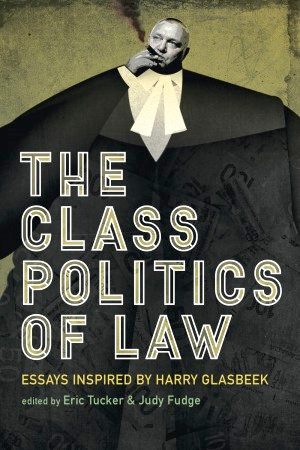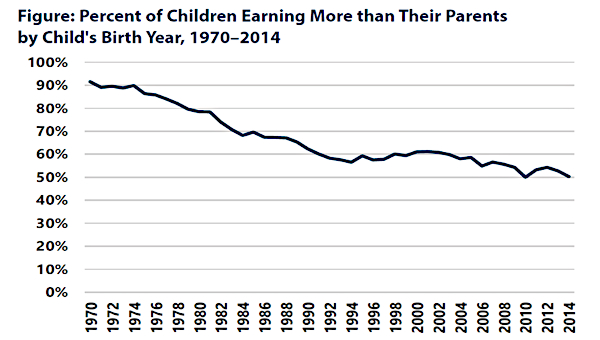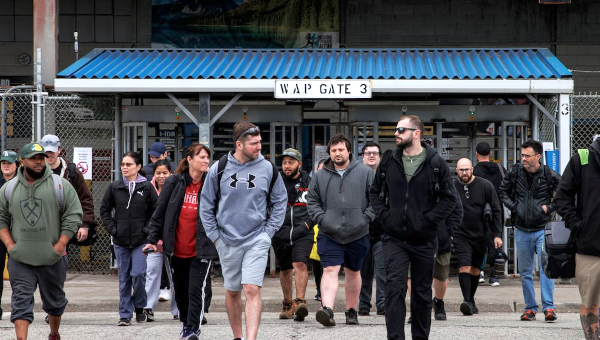Boeing: A New Report, An Old Story
Item 1. A major tobacco company had to deal with regulators in the Czech Republic. The regulators were demanding that rather alarming health hazard signs be put on cigarette packs. The tobacco company argued that, really, tobacco was not that dangerous but, even if it did kill people, it would be wise for the government not to inhibit smoking too much. After all, if it caused premature deaths, tobacco would preserve the government’s revenues. As people age, they use costly health and social well-being programmes way more than younger folk. A few premature deaths might be cost-effective.
The coronavirus period political debate is infused with this argument. It is a shameful argument, but it inheres in the logic of capitalism.
Item 2. In the late 1960s, Ford Motor Company wanted to fight off competition from small European and Japanese cars. Under the direction of Lee Iacocca, it set out to produce a car that weighed no more than 2000 pounds and cost no more than $2000 to produce. It was to be named Pinto. As these instructions were being followed, Ford was aware that regulators were developing a new standard that they called Fuel System Integrity. The system would ensure that cars would be able to withstand collisions at 30 mph when rear-ended. This concerned the Ford engineers as, in meeting their instructions, they were intent on placing an unprotected fuel tank as close to the rear of the car as possible. In the many tests they ran before the promulgation of the proposed standard, they had found that rear-end collisions at speeds of 25 mph ruptured the Pinto fuel tank.
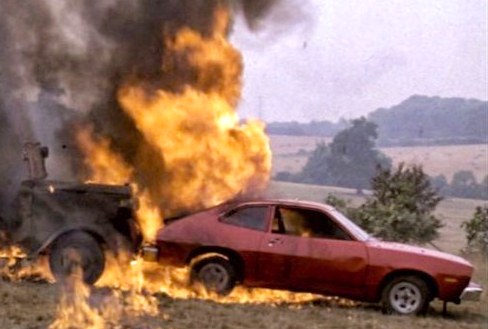
Nonetheless, they vigorously opposed the projected safety standards. The argument they presented to the regulators was that the Fuel Integrity System would cost Ford an extra $100-million over three years. At one point, Ford told the regulators it was much cheaper for the company to pay for the carefully calculated anticipated number of lost vehicles and dead and injured people, than it would be to do what was necessary to avoid this carnage. For eight years they ‘consulted and negotiated’, during which time Pintos rolled off the assembly lines and duly exploded and burned hundreds of people to death and injured more. Eventually, when its cold, hard-headed rationale became public, and yet another Pinto was set ablaze and four people died horrible deaths, a criminal prosecution was brought against Ford Motor Company (not Lee Iacocca or any other executives). The criminal trial was a farce as a biased judge refused to admit the evidence of Ford’s admission to the regulators of its willingness to kill and maim to enable it to make money, leaving the prosecutor with no substantive arguments. The prosecution failed. General Motors took out full page ads to congratulate its fierce competitor on its ‘vindication’. The federal government bought the remaining Pintos to provide a fleet of cars for its civil servants.
It is normal in capitalist politics for would-be wrongdoers to be consulted by governments to see how much wrongdoing they should be allowed to engage in and how much harm they should be allowed to inflict. However, drug dealers (other than pharmaceuticals, of course), robbers, confidence tricksters, and sex-traffickers are accorded no equivalent voice about the standards they have to meet. As a genre of regulation, the regulation of capitalists is in a class of its own.
Item 3. Boeing. The just-issued US Congressional Report tells us that Boeing needed a plane to compete with a new design by Airbus. It settled on the 737-8, a 4th generation version of the Max series first launched in 1967. It was to have a heavier engine that had to be installed higher than its predecessors. This increased the danger of the plane suddenly lurching upward. A novel flight control feature, known as MCAS, was added. It would be warned by a sensor (known as an Angle of Attack, or AOA) on the front of the aircraft that something was awry, and the MCAS would push the nose back down. If this did not work, the flight crew would have to react – and quickly. Apparently, none of this worked when a 737-8 Max bought by Lion Air Flight crashed in Indonesia, killing the 189 people on board as well as a rescue worker. Nor did it work five months later when another such aircraft used by Ethiopian Airlines crashed while flying from Ethiopia to Kenya. This time, 157 people perished. The failures were predictable. In its drive to save costs, Boeing had cut testing and flying test support hours by 3000 hours; it had cut flight deck simulator testing by 8000 hours; it had not told the Federal Aviation Administration (FAA) that it was installing a novel flight control system (the MCAS), as the FAA would then have required that Boeing provide training for the pilots of the airlines that bought the plane. One such purchaser Southwest Airlines had demanded that any training of its pilots would have to be paid for by Boeing; at $1-million a pop for up to 400 planes, Boeing had a real incentive not to trigger a training requirement; not only did it fail to tell the FAA about the novelty of its flight control system, it did not mention it in the flight crew manuals it provided; nor did it reveal that its internal tests showed that the MCAS might go off repeatedly, making the regaining of control extremely difficult and that its own testing showed it would take a pilot at least 10 seconds to correct any error. It was known that the FAA standard demanded that such corrective actions had to be manageable in 4 seconds, leaving a gap of 6 seconds, which matter in these life and death moments. Nor did Boeing explain, not to the FAA, not to the purchasers of the planes, that it knew that some of its AOAs, essential to the working of the MCAS, were not operable at all. The pilots of the ill-fated Lion Air Flight plane had no idea the AOA was not working.
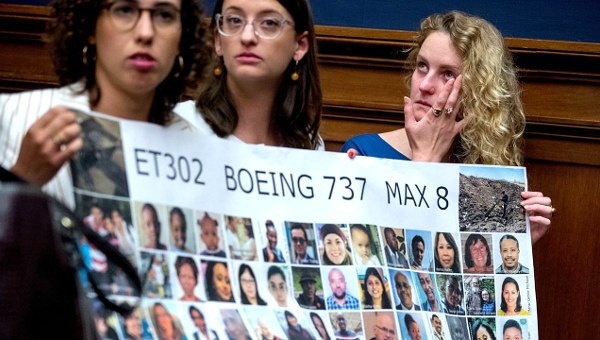
More, one of the standard ways to assure the FAA that standards are being met by the private actors it regulates is to have Authorized Representatives (AR) in place in the manufacturing plant. The AR’s duty is to the FAA and its standards. As is common place in this kind of regulatory system, the regulators’ representatives, the ARs, actually were Boeing employees and therefore felt very conflicted. In the result, they did not disclose problems that they discovered to the FAA. When one Boeing employee, a former member of the military, told the General Manager of the 737-8 Max project that, in his opinion, given the known problems, if the military were responsible for such a plane, it would have stopped work, the General Manager replied: “The military is not a profit-making organization.” And so, people died.
Boeing has suffered losses, in money and reputation, as the 737-8 Max has been taken out of service everywhere. It faces many investigations and lawsuits. However, Boeing is still getting subsidies from various levels of government and is chugging along quite well, thank you. It has expressed its sincere sorrow and says it is working very hard to correct its mistakes (a very neutral word) and is looking forward to having a new and better version of the 737-8 Max ready soon. Then back to business as usual. No one has been charged with any crime, even though a lot of people have died.
Major Harm
This should be enough to show that there is a similarity, a pattern, when it comes to harm-doing by major corporations. Asbestos manufacturers and processors were allowed to inflict enormous harm for decades even though they knew that they were doing so. It is estimated that, due to their exposure to asbestos, about 100,000 people will die premature deaths every year for the next 50 years. A mere five criminal prosecutions have been launched. The same indifference to predictable outcomes is part of the narrative in the tobacco industry, and in the plastic manufacturing industry. The story can be told about hundreds of mining disasters (remember Westray), about Nestle, which may be taken to have known that when they persuaded women in poverty-stricken countries to buy powdered milk to replace breast-feeding, the powdered milk would be mixed with impure waters leading to terrible outcomes.
Then there were the makers of the Dalkon Shield, a contraceptive device known by the manufacturers to have toxic effects (and when this was finally conceded, just as in the Pinto case, the despicable makers palmed off the remaining defective devices to the US Administration, which then included them in, and counted them as part of, the aid it gave to poorer countries). More recently, the cost-cutting rail operators allowed the transporting of flammable substances, as in the Lac-Megantic explosion that killed 47 people as a run-away train blew up a town. It led to a lot of public attention, denunciations by politicians, but in the end, no one was convicted of homicide, or of a serious crime of any kind. Rather, some charges were laid against middle-level managers, alleging breaches of the Rail Safety Act and the Fisheries Act.
And when Volkswagen was caught deliberately misleading the regulators, allowing toxic substances to affect hundreds of thousands of people, one of its responses was to spur research to show that all the other automobile companies also deliberately lied and emitted poisons as part of their business model. Volkswagen was right: Fiat Chrysler, Nissan, Renault, Mercedes, and Mitsubishi had done the same thing. Added to this tragic history are also the well-known stories of the financial scams that led to grievous losses by house owners and small-time investors as banks and financial institutions broke every rule in the book with so much impunity that the phrase ‘too big to fail, too big to jail’ is now widely thought to be a legal principle. And so it goes.
Boeing killed two plane loads of people, human beings with families and dependents. The tragedies were completely foreseeable, indeed, almost planned. It is just the latest horrific illustration of a truly monstrous state of affairs in which large, wealthy actors repeatedly violate existing laws, knowing that they will harm people, exert undue influence on those appointed to stop them doing so and, if finally caught, escape virtually unscathed. Boeing’s story is hardly worth telling. It is a story that reflects the callous nature of large for-profit corporations and the special treatment our polities accord them.
The question therefore is this: how is it that manifestly bad practices are treated as normal practices? The answer was provided by Al Capone, a well-known expert on crime who knew a thing or two about harming people while violating laws, and influencing and bullying regulators. He said: “Capitalism is the legitimate racket of the ruling class.”
Profits
Imagine a man who gets his kicks from hurting kids. He sprinkles arsenic where some children are likely to get it on their hands and put it into their mouths. A child dies. Has our man committed a crime, a serious crime? Of course.
Reed Paper Company sprinkled its own form of arsenic. Its productive activities let loose huge quantities of poisonous mercury into the Wabigoon River between 1962 and 1970 and continued to do so for five years after an order to stop had been issued by the government. Eventually, it left the area. The communities of White Dog and Grassy Narrows suffered horribly, and, to this day, are still being affected by left-over mercury. No one has been prosecuted for a crime.
What is the difference between Reed Paper’s conduct and that of the imaginary arsenic poisoner? The imaginary man is seeking thrills. He has no purpose other than that. Worthless, unmeritorious. Reed Paper Company was chasing profits. It had no other purpose than that. There is no nobler cause.
This is the logic of capitalism. Nothing is more important than the private accumulation of wealth in a competitive setting. The impulse to engage in this project is taken to be elemental, natural. The value of individuals focussing on satisfying their lust for more is portrayed as worthwhile because not only does it uphold human desires but it also allows the allocation of talents and resources to be made efficiently and without any political interference. Overall economic welfare will be the result, and freedom from government direction and mis-management are said to be a big collateral bonus. It makes sense, therefore, as Barbara McDougall, a former Minister of Finance, refreshingly told us, that the hunt for profit must be given as much rein as possible. She stated: “There is one underlying motive in business shared by all – it is greed. We support it wherever it happens.”
This is why Reed Paper, whose conduct is much like that of the arsenic sprinkler, was not persecuted or prosecuted. The promotion of the private accumulation of wealth in a competitive setting is the government’s primary job in capitalist relations of production. As the Boeing story (and all the other stories) tells us, this means asking us all to shrug our shoulders resignedly while large corporations maim, kill, and destroy, as they wage wars on us and on our environments – again and again.
Weaponizing Capitalists
The more governments leave the creation of wealth to private actors, the more they come to rely on those private actors. They need the owners of the means of production to invest their capital. Those with many resources, in reality a small number of very rich individuals and very large firms, can choose where and when to invest some of their wealth or not to invest it at all. Governments feel they must provide incentives to these potential investors. And, as a corollary, they must keep any cost-imposing measures at a minimum.
(i) The corporation as an incentive
Law invites the owners of wealth to incorporate their businesses. It has created a very simple process, one with no hurdles of any consequence to clear, to put the investors’ money into a separate person, a corporation. Once this is done, the corporation holds all the property and is responsible for how it is used. It is accountable for the results of its efforts to maximize the profits of the investors. The investors may lose their investment but are in no way responsible for any debts incurred or nor are they liable to prosecution for any wrongs done in their name. They have every incentive to pressure the people they appoint to run the corporation to do anything, anything at all, to maximize profits. The coronavirus catastrophes in old age for-profit care centres tell the story. Dollar-based managerial practices showered indignities on people in their care and led to a disproportionate number of deaths inflicted by the virus. None of this stopped shareholders from collecting their dividends, that is, their share of the ill-gotten profits these (mal)practices yielded. As David Whyte writes in his recent Ecocide, the corporate form furnishes the gold standard when it comes to social distancing. In none of the cases of corporate wrongdoings listed above, including Boeing, of course, was any shareholder held personally responsible for the losses incurred by others nor made to give back any of the fat dividend cheques they had earned as people were maimed, killed, poisoned, bankrupted, and environments were pillaged. This legal invention, the corporation, is a handsome gift to the investing class. It facilitates, often promotes, anti-social behaviours.
(ii) The regulatory system as a licence to kill, maim, and destroy
Precisely because capitalists, usually hidden inside a corporate envelope, have discretion as to whether or not to invest, they are seen as benefactors when they do. Private investors seeking to accumulate ever more wealth are perceived to be virtuous actors. Obviously, it would be wrong to treat them as society does less virtuous people, human beings who only have talents but not inorganic resources to invest. This is the brute logic of capitalism. It explains the nature of any regulatory scheme that imposes some restraints on any activity initiated to maximize profits. Such schemes are put into place because it is clear that any productive activity creates risks and some of those risks become unacceptable to the general public. Thus, there are minimum standards governing workplace relations, consumer protection laws, rules about the need to get building permits, to have environmental assessments, and so forth. On the face of it, capitalists are fettered. But even as there seems to be so much intervention with red-blooded capitalists’ endeavours to make a buck, remember that all these regulatory systems start with the assumption that the owners of wealth are doing us a favour when they invest their capital, that they are virtuous. This signifies the following:
- that all regulatory systems start off from the premise that all productive activities entail risks, whether they are for-profit or not-for-profit activities. The creation of risk is posited as a neutral outcome. It follows that the virtuous profit-seeking risk-creators, and any substances or processes they choose to use, should be deemed to be innocent until proven otherwise. This explains the lengthy time lapses before the deployments of profit-generating asbestos, tobacco, mercury, and the like, were restricted in any way. This explains why no meaningful regulatory restraints or prohibitions were put in place until there were so many victims that something had to be done.
- that as the investors are virtuous and doing us favours, it is right and proper for governments to consult and negotiate with them to make sure that the restrictions imposed do not inhibit investment by these virtuous owners of wealth. This goes some way toward explaining the low standards of behaviour that so often lead to tragedies. No less a person than Adam Smith observed that if people with a material interest in standard-setting are given a say in how they should be restrained, they are bound to deceive the standard-setters. This is exactly what happened in the Boeing saga (and the Volkswagen, asbestos, tobacco, plastics, etc. travesties). This kind of deception is made all the easier because regulators do not have as much information about the risks being created as the supposedly virtuous risk-creators.
- that as the capitalists, the risk-creators, are given an active role in setting and maintaining standards imposed by governments, it makes sense for governments to ask them to help monitor and enforce the standards. This goes some way toward explaining the kind of cozy agreement the FAA and Boeing had as the plane was being developed, a kind of arrangement that is used in a variety of ways in a variety of regulatory settings.
- that as not all risks will be eliminated by bargained-for regulations, a regulatory scheme licenses the infliction of some harms, some injuries. It is only when the capitalists violate these standards which they helped set that there is even talk of holding them to account. A specified level of harms inflicted on non-capitalists is legitimated to ensure that unharmed but virtuous capitalists can make profits.
It is not a very protective system. It is a capitalist-favouring system.
Planned Accidents
Because they are not directed at any specific victims, the many grievous damages inflicted on non-capitalists and on their environments are conventionally described as accidents. This makes the toll exacted acceptable. After all, an accident is an unplanned event, an unexpected occurrence. Its happening, while regrettable, does not require blaming or shaming anyone. This is the illusion with which we are asked to live.
Our political economy is one in which the central goal is the private accumulation of wealth. The maximization of profits in a competitive setting is its reason for existence. This shapes our approaches, our laws, and institutions. Both the corporation and the regulatory systems aimed at controlling them are designed to shift risks to those who do not have any disposable wealth to invest. The working class, as a class, has no equivalent ability to shift the costs of harm-doing onto others. This cannot be admitted. Hence, we have to endure all this fatuous talk about accidents.
Boeing’s planes crashed. People died. These were not accidents, any more than the asbestos, mercury, tobacco poisonings, exploding cars and trains, toxic emissions, financial failures, etc. were accidents. These tragedies are structured into the way capitalism works. Every day. •


